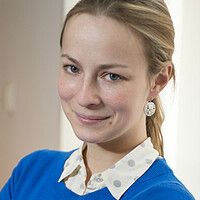Just who is Ukraine's opposition?
Loading...
Ukraine braced for more days, if not weeks, of grim uncertainty on Thursday night, as the highly anticipated opposition-government negotiations failed to bring results.
Three main opposition factions insisted that they will continue to press President Victor Yanukovych on conditions of a joint ultimatum, which include demands for his resignation, snap elections, and the repeal of the new anti-protest legislation adopted last week. They’re also coordinating activities in Ukraine’s parliament (Rada), and appear jointly on stage to rally supporters.
“Three things unite us,” prominent opposition leader Vitali Klitschko told The Guardian recently. “The first is disagreement with the current economic situation; the second is that we see European integration as the only future for Ukraine, and the third is the struggle against the current authoritarian regime.”
Yet despite the outward insistence on unity, the opposition is comprised of several separate strands whose different leanings and platforms could strain today’s unity. Below is a brief summary and some potential fault lines.
All-Ukrainian Union 'Fatherland' ('Batkivshchyna')
Fatherland holds about 20 percent of parliament seats, making it Ukraine’s second most powerful political group after the governing Party of the Regions. Of all opposition parties, Fatherland’s legacy traces back most directly to the 2004 Orange Revolution. It was launched in 1999 by Yulia Tymoshenko, icon of the Orange Revolution, ex-premier, and now prisoner jailed on charges of office abuse, which her supporters claim to be the president’s political retribution for his 2004 defeat. The party has remained unswervingly loyal to Ms. Tymoshenko as symbolic leader since her imprisonment in 2011, defiantly nominating her the candidate for presidential elections in 2015, despite the fact that she could still be behind bars.
But the party’s de-facto head is Arseniy Yatsenyuk, a lawyer and economist who heads the faction in the Rada. He has a decorated resume that includes brief stints as head of the national bank and minister of economics and foreign affairs, but he lacks Tymoshenko's crowd-raising charisma or Mr. Klitschko's physical presence at the microphone.
The party’s list of demands includes the release of Tymoshenko and others jailed on political grounds, the resignation of the current government, and the revamping of the constitution (in the near term), as well as signing the EU Association Agreement in preparation for ultimate future EU membership and the severing of close trade bonds with Russia (in the longer term).
Ukrainian Democratic Alliance for Reform (UDAR)
While Fatherland has the largest representation in the parliament among opposition factions, the relatively younger UDAR boasts Ukraine’s most popular politician. The party’s surge at the polls since its launch in 2010 has been spurred by the popular appeal of Vitali Klitschko, a world heavyweight boxing champion with a PhD in sports science and presidential aspirations. Recent opinion polls show that Klitschko would have handily defeated Yanukovych in a run-off presidential election if it were held today. The party’s abbreviation spells out the Ukrainian (and Russian) word for “punch.”
The party calls for government modernization, an assault on corruption, and the reorientation of Ukraine towards Europe. Its objective is to “transform politics according to fundamental European values” – which include the rule of law, civil liberties, and dramatically downsized bureaucracy.
Despite the ostensible similarity of their agendas, UDAR and Fatherland have been known to spar over how best to keep the opposition playing field level – such as when they clashed in 2012 over nominating common candidates in single-mandate districts.
Svoboda ('Freedom')
This far-right political coalition with a strong nationalistic bent is led by Oleh Tyahnybok and has recently enjoyed a dramatic resurgence at the polls. Driven by the loathing of the East, the party’s platform unites calls for immediate withdrawal from all Russia-led organizations and membership in both the EU and NATO with openly racist and homophobic views: its program openly demands the introduction of ethnicity-based Ukrainian citizenship.
The faction consistently draws criticism for its right-wing and anti-Semitic leanings, which had led to Mr. Tyahnybok’s expulsion from the oppositional Our Ukraine bloc during the Orange Revolution. The faction weathered several years of political obscurity before mounting a dramatic comeback in the October 2012 parliamentary election, when it won 10 percent of the national vote. Its power base is primarily in the country’s Ukrainian-speaking regions to the west, although Kiev registered a startlingly high level of Svoboda support in 2012.
Svoboda has stood behind the toppling of the Lenin statue and the taking over of the Kiev city hall in early December (although other factions participated) and has since joined calls for a national strike to topple Yanukovych.
'Pravy sektor' (Right sector)
This radical-right movement launched during the early days of Euromaidan, and has yet to articulate an official platform, choose a single leader, or establish formal headquarters (it is loosely based around Kiev city center). But what it lacks in structure it has made up in visibility over the past weeks. Its stick-wielding, stone-throwing supporters – many of them drawn from the often violent world of soccer fandom, according to the BBC – are thought to have played a key role in the clashes with the police and the recent escalation of violence. Its organizers have warned of a full-out civil war and “guerilla warfare” if the opposition’s demands are not swiftly met.
The movement fervently opposes integration with Russia and participation in any Moscow-led organizations, including the proposed customs union. But it likewise takes aim at the EU, which it says degrades the strength of participating nations, and is angling instead for a “national revolution.”
The tenuous bond between Right Sector supporters, numbering around 100,000 on the group’s page on the Russian social networking website Vkontakte, and the mainstream coalition is already giving way. When Vitali Klitscko attempted to pacify Right Sector’s street combatants on Sunday, he got his face sprayed from a fire extinguisher, before the angry crowd barreled toward nearby riot police lines.








